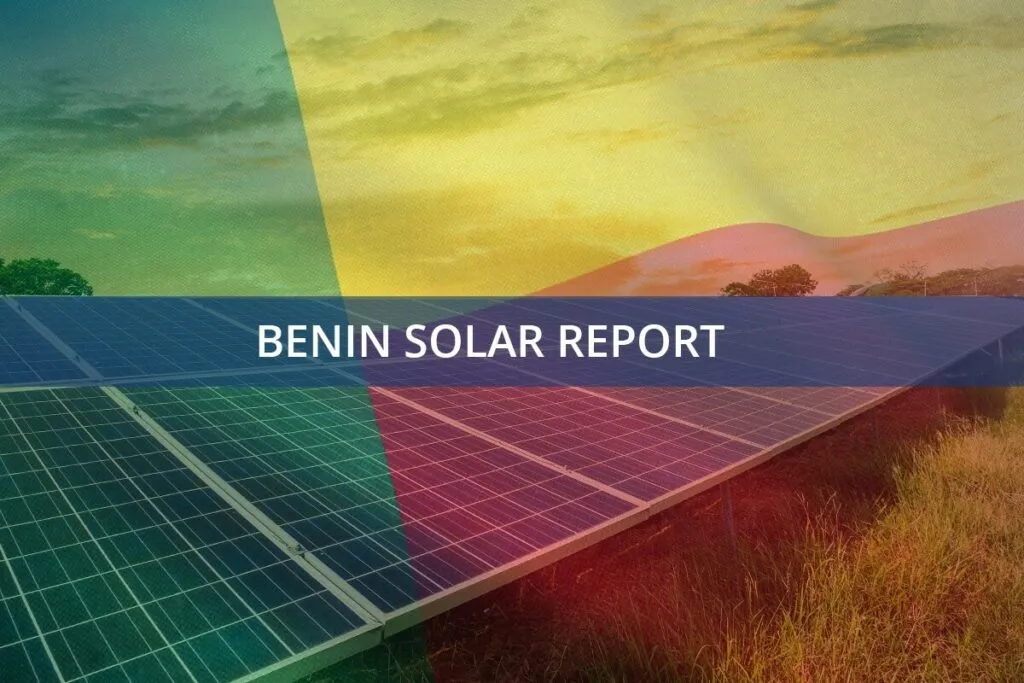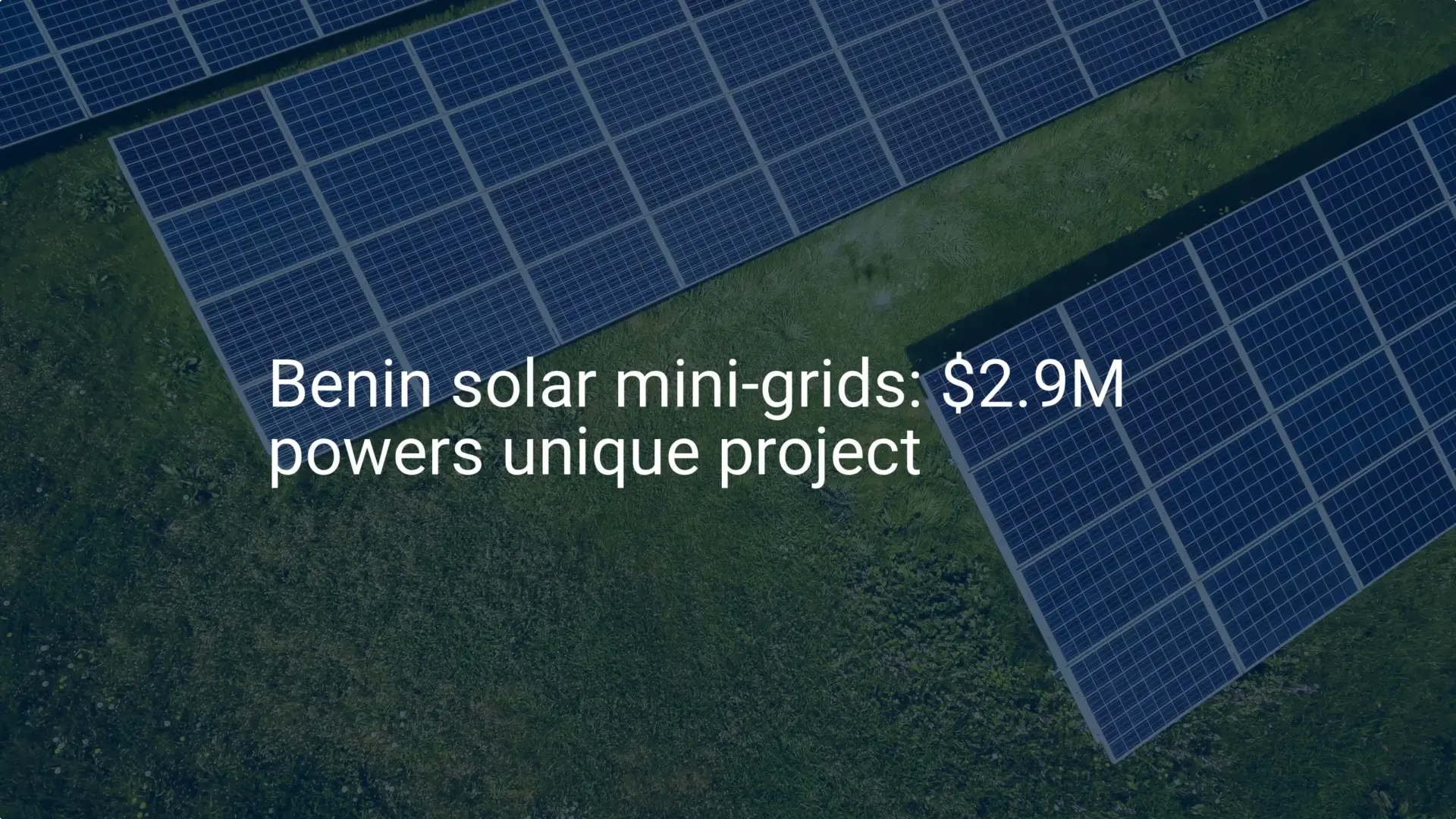An investor might have a robust business plan, secured financing, and even identified a prime location for a new solar module factory. Yet, the journey from concept to operation can often stall at an underestimated hurdle: administrative and regulatory compliance.
In the Republic of Benin, a nation actively promoting renewable energy, understanding the required permits and licenses is not just a formality—it is the foundation of a legally sound and sustainable enterprise. This article outlines the key governmental bodies, permits, and processes an investor must navigate to establish a solar module manufacturing facility in Benin. While the path is detailed, careful preparation makes it entirely manageable.
Table of Contents
Understanding Benin’s Institutional Framework for Investment
Benin has streamlined its investment process for both foreign and local entrepreneurs. The central institution for investors is the Agency for the Promotion of Investments and Exports (APIEx), which serves as the primary point of contact for new business ventures.
APIEx operates a “Guichet Unique,” or One-Stop Shop, to centralize and simplify registration and approvals. Engaging with this agency is the logical first step for any entrepreneur planning a solar factory. APIEx also offers guidance on the country’s Investment Code, which details significant incentives—including tax exemptions and customs duty reductions—for strategic sectors like renewable energy manufacturing.

Core Permits and Licenses: A Step-by-Step Overview
Establishing an industrial facility requires approvals from several government bodies. The process breaks down into key phases, each with its own documentation and compliance requirements.
1. Company Registration and Legal Establishment
Before applying for any other permits, your business must be legally established as an entity in Benin. The APIEx One-Stop Shop handles this initial step.
Action Required: Formal company registration (e.g., as a Limited Liability Company, or SARL).
Key Body: Agency for the Promotion of Investments and Exports (APIEx).
Process: The investor submits the company’s statutes, proof of identity for the directors, and other foundational documents. APIEx facilitates registration with the trade registry, tax authorities, and social security office (CNSS).
2. The Environmental Compliance Certificate (Certificat de Conformité Environnementale)
For any project with potential environmental impacts, this is the most critical permit. A solar module factory, by its industrial nature, falls squarely into this category.
Action Required: Obtain an Environmental Compliance Certificate.
Key Body: Agence Béninoise pour l’Environnement (ABE).
Process: The investor must commission and submit a detailed Environmental and Social Impact Assessment (ESIA). This study analyzes the project’s potential effects on the local ecosystem, water resources, and community. The ABE reviews the ESIA and, if the mitigation plans are satisfactory, issues the certificate. This document is often a prerequisite for securing financing and demonstrates a commitment to sustainable operations.
3. Construction and Land Use Permits
With the company formed and environmental clearance underway, the focus shifts to the physical site.
Action Required: Secure a Building Permit (Permis de Construire).
Key Body: Ministry of Living Environment and Sustainable Development (MCVDD) in coordination with the local municipal authority (Mairie) where the factory will be located.
Process: This requires submitting architectural drawings, structural engineering plans, and proof of land ownership or a long-term lease. Authorities verify that the project complies with national construction standards and local zoning regulations, ensuring the land is designated for industrial use.
4. Operational Licenses for the Energy Sector
Although the factory is for manufacturing, its activities are overseen by national energy authorities. These bodies ensure that the factory’s products meet national standards and its own energy consumption is compliant.
Action Required: Registration and alignment with national energy standards.
Key Bodies: Autorité de Régulation de l’Électricité (ARE) and Agence Nationale pour le Développement des Énergies Renouvelables (ANER).
Process: The ARE oversees the electricity sector’s legal framework, while ANER focuses on promoting renewables and may have specific technical standards for modules intended for the local market. Engaging with them early ensures the factory’s output will be eligible for government projects and private installations in Benin.

Navigating Common Challenges and Timelines
While a well-structured approach to these regulatory steps is vital, investors should still prepare for potential challenges:
-
Bureaucratic Delays: While APIEx provides a single window, the underlying coordination between ministries can take time. Patience and persistent follow-up are essential.
-
Documentation Specificity: All official documents must be in French. Using professional translation services is crucial for completing all paperwork accurately and avoiding rejections.
-
Timeline Expectations: Based on experience, an investor should realistically budget between 6 and 12 months for the entire permitting process. This timeline is heavily influenced by the complexity and quality of the Environmental and Social Impact Assessment.
The Strategic Advantage of Local Partnerships
For entrepreneurs new to the Beninese market, engaging a local legal or consulting firm is an invaluable investment. A local partner brings an intricate understanding of the administrative culture, established relationships within government agencies, and fluency in French. This expertise can significantly accelerate the process and help avoid common pitfalls.
A local partner can also offer crucial insights into how a planned solar panel manufacturing plant layout aligns with local construction norms and land-use regulations.
Frequently Asked Questions (FAQ)
Is a Beninese partner required to start a business in Benin?
No, the Investment Code of Benin permits 100% foreign ownership of companies. However, a local partnership is highly beneficial for navigating the local business and regulatory environment.
What is the primary language for official documents?
The official language of Benin is French. All legal documents, applications, and official correspondence must be submitted in French.
Are there specific incentives for solar manufacturing in Benin?
Yes. Under the Investment Code, projects in priority sectors like renewable energy are eligible for significant incentives. These can include exemptions from VAT and customs duties on imported equipment, as well as potential tax holidays. APIEx is the best source for detailed, up-to-date information.
How does pvknowhow.com assist with this process?
pvknowhow.com provides comprehensive consulting and educational resources on the technical and operational requirements for setting up a factory. This includes guidance on machine selection, production processes, and quality control systems necessary for the detailed project plans required by bodies like ABE and ANER.
Conclusion
Securing the necessary permits for a solar factory in Benin is a methodical process where thorough preparation pays dividends. By understanding the roles of APIEx, ABE, and the energy authorities, an investor can navigate the regulatory path with confidence. Benin’s clear government support for renewable energy creates a promising climate for such ventures.
With these regulatory requirements in view, your next step is to refine the financial and operational details in a comprehensive solar panel manufacturing business plan.






